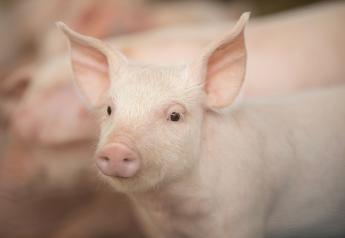Crisis Planning: What's Your Plan?

It's tough to talk about the "what ifs" but planning for the worst is important for the future success of your operation. There are different kinds of plans that producers need to have in case of disasters.
Emergency Action Plan
As part of the PQA Plus program, the Emergency Action Plan is designed to address situations on the farm as they occur to keep operations running normally.
For instance, if an ice storm hits and there’s no power at a site, the Emergency Action Plan reminds producers to have a generator and other tools in place to ensure pigs are well-cared for throughout the situation, Cunningham explained.
Interactive, online worksheets guide producers through each step of the plan, starting at the basics, like operation information and site contacts. In the event of a system failure or manure spill, would you know who to call? The completed worksheets can be saved to a computer and printed out to have available to all employees as required by Occupational Safety and Health Administration (OSHA) regulations.
Cunningham said, “Those Emergency Action Plans are critical for producers looking at all kinds of natural disasters and how they would deal with those situations.”
It covers a multitude of scenarios. For example, would your team know who to call in the event of a system failure? Could a fire in the feed equipment spread to a nearby barn or could you call for help quickly?
With the completed Emergency Action Plan, this information and more would be available to everyone on your team, as is required by OSHA regulations.
Farm-Level Crisis Plan
Whereas the Emergency Action Plan looks at keeping operations running smoothly through any situation, the Farm-Level Crisis Plan takes it one step further. It helps ensure other key individuals and entities, such as lenders or neighbors, understand what producers did to care for their animals in an emergency, and that they have taken the necessary steps to continue with a viable business.
Julie Maschhoff, a producer from Carlyle, Ill., was among those who has had first-hand experience with planning for crisis on a farm-level. As the Farm-Level Crisis Plan was introduced to the public in 2013, Maschhoff spoke out to explain how advanced planning helped at The Maschhoffs, one of the largest pork operations in the country.
“As a pork producer, I know first-hand the implications of a farm-level crisis,” Maschhoff described. “We’ve dealt with everything from flooding to tornadoes to fires, and we’ve learned that having a crisis management plan helps us stay focused.”







